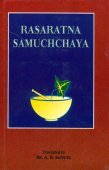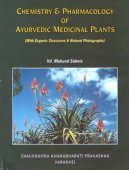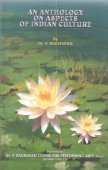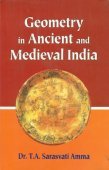A: 19 definitions
Introduction:
A means something in Hinduism, Sanskrit, the history of ancient India, Marathi, Hindi, Tamil. If you want to know the exact meaning, history, etymology or English translation of this term then check out the descriptions on this page. Add your comment or reference to a book if you want to contribute to this summary article.
Alternative spellings of this word include Aa.
Images (photo gallery)
(+3348 more images available)
In Hinduism
Vyakarana (Sanskrit grammar)
Source: Wikisource: A dictionary of Sanskrit grammarA (अ).—(ೱ) प् (p) (ೱ) Upadhmānīya represented by a sign like the temple of an elephants stated by Durgasiṃha who remarks "गजकुम्भाकृतिर्वर्ण उपध्मानीयसंज्ञो भवति (gajakumbhākṛtirvarṇa upadhmānīyasaṃjño bhavati)." Kāt.I. It is a voiceless breath following the utterance of a vowel and preceding the utterance of the labial letter p (प् (p)) or ph (फ). It is looked upon as a letter (वर्ण (varṇa)), but dependent upon the following consonant and hence looked upon as a consonant.
--- OR ---
1) Ā (आ).—The long form of the vowel अ (a) called दीर्घ (dīrgha),consisting of two mātrās, in contrast with (l) the short अ (a) which consists of one mātrā and the protracted आ३ (ā3) which consists of three mātrās;
2) Ā.—Substitute आ (ā) of two mātrās when prescribed by the word दीर्घ (dīrgha) or वृद्धि (vṛddhi) for the short vowel अ;
3) Ā.—Upasarga आ (ā) (आङ् (āṅ)) in the sense of limit e.g. आ कडारादेका संज्ञा (ā kaḍārādekā saṃjñā) (P.I.4.1.) आकुमारं यशः पाणिनेः (ākumāraṃ yaśaḥ pāṇineḥ) K. on II.1.13. आ उदकान्तात् (ā udakāntāt) (M. Bh. on I.1.14.)
4) Ā.—Indeclinable आ (ā) in the sense of remembrance e. g. आ एवं नु मन्यसे (ā evaṃ nu manyase); cf. ईषदर्थे क्रियायोगे मर्यादाभिविधौ च यः । एतमातं ङितं विद्याद्वाक्यस्मरणयोरङित् (īṣadarthe kriyāyoge maryādābhividhau ca yaḥ | etamātaṃ ṅitaṃ vidyādvākyasmaraṇayoraṅit) M. Bh. on I.1.14;
5) Ā.—Augment आ (ā) (आक् (āk)) as seen in चराचर, वदावद (carācara, vadāvada) etc. cf. M. Bh. VI.1.12 Vārt. 6;
6) Ā.—Augment आ(आट् (āṭ)) prefixed to roots in the tenses लुङ्, लङ् (luṅ, laṅ) and लृङ् (lṛṅ)
7) Ā.—Substitute आ (ā) prescribed for the last letter of pronouns before the tad. affixes दृक्,दृश, दृक्ष (dṛk, dṛśa, dṛkṣa) and वत् (vat), as in तादृक्दृ, तादृश (tādṛkdṛ, tādṛśa) etc.;
8) Ā.—Feminine affix आ (ā) (टाप्, डाप् (ṭāp, ḍāp) or चाप् (cāp)) added to nouns ending in आ;
9) Ā.—Substitute आ (ā) (आ (ā) or आत् (āt), or डा (ḍā) or आल् (āl)) for case affixes in Vedic literature उभा यन्तारौ, नाभा पृथिव्याः (ubhā yantārau, nābhā pṛthivyāḥ) etc.

Vyakarana (व्याकरण, vyākaraṇa) refers to Sanskrit grammar and represents one of the six additional sciences (vedanga) to be studied along with the Vedas. Vyakarana concerns itself with the rules of Sanskrit grammar and linguistic analysis in order to establish the correct context of words and sentences.
Purana and Itihasa (epic history)
Source: archive.org: Puranic Encyclopedia1) A (अ).—The first letter (Vowel) of all Indian languages. According to the Nānārtharatnamālā this letter has the following meanings:—Brahmā, Viṣṇu, Śiva, tortoise, courtyard, battle, harem, jewellery, sea, Pārvatī and bowstring.
2) Ā (आ).—This word means Brahmā and also anādaravākya (a word showing disrespect). In the indeclinable form it means limit, anger and pain.

The Purana (पुराण, purāṇas) refers to Sanskrit literature preserving ancient India’s vast cultural history, including historical legends, religious ceremonies, various arts and sciences. The eighteen mahapuranas total over 400,000 shlokas (metrical couplets) and date to at least several centuries BCE.
India history and geography
Source: Cologne Digital Sanskrit Dictionaries: Indian Epigraphical GlossaryĀ.—d8ha (IE 8-6), same as āḍhika or āḍhaka; a measure of capacity; a land measure also called āḍhavāpa. Note: ā is defined in the “Indian epigraphical glossary” as it can be found on ancient inscriptions commonly written in Sanskrit, Prakrit or Dravidian languages.
--- OR ---
Ā.—d8hā (IE 8-6), Bengali form of āḍhaka and āḍhavāpa. Note: ā is defined in the “Indian epigraphical glossary” as it can be found on ancient inscriptions commonly written in Sanskrit, Prakrit or Dravidian languages.
--- OR ---
Ā.—ṉai-ccālai (SITI), Tamil; ‘an elephant stable’; tax payable for the maintenance of the elephant stable. Note: ā is defined in the “Indian epigraphical glossary” as it can be found on ancient inscriptions commonly written in Sanskrit, Prakrit or Dravidian languages.

The history of India traces the identification of countries, villages, towns and other regions of India, as well as mythology, zoology, royal dynasties, rulers, tribes, local festivities and traditions and regional languages. Ancient India enjoyed religious freedom and encourages the path of Dharma, a concept common to Buddhism, Hinduism, and Jainism.
Languages of India and abroad
Marathi-English dictionary
Source: DDSA: The Molesworth Marathi and English Dictionarya (अ).—The first letter of the alphabet, and the inherent short vowel. It corresponds with A in its shortest or most obscure sound, as in sugar, mortar, collar, jocular. It is prefixed ad libitum to adjectives, substantives, and participles introduced from the Sanskrit; and, although with less frequency and with no elegance, to words purely Marathi. Its senses or powers are-- I. Privation or negation: as apāra Boundless, akṣaya Imperishable. II. Deterioration: as akīrti Ill fame, akarma A bad action, anādara Disrespect. III. Diminution or deficiency: as abōlaṇā or abōlyā Taciturn, abuddhi Dull of understanding, aśijā Imperfectly boiled. IV. Enhancement or transcendency: as amānuṣa or apauruṣa Superhuman, alaukika Extraordinary. V. Return, reverting to the former state: as asujaṇēṃ To subside or swell down--a swelling, ahāraṇēṃ To become unstrung: i.e. to lose its hāra or wreath-form. a thus bears the double sense or power of the English Un, viz. Negation, as in Unwise, unhappy, and the sense, little observed indeed, but worthy of all observation, of Return back or nullification, as in Unwind, untie, unfold, undo, and all the shades of the Privative and Deteriorative senses of the English Dis and In; and, as In becomes, by the laws of euphony, II, Im, Ir, so a becomes ana, as in ananta, anakṣara, anadhyāya. Of the above senses of a the first abounds, and only the well approved cases of its occurrence are inserted; the second is much less abounding; and the third, fourth, and fifth are very rare, scarcely affording an instance additional to those given.
--- OR ---
ā (आ).—The second letter of the alphabet, corresponding with A in Father, chance. As a preposition or prefix to words from the Sanskrit, it signifies I. Diminution: as ōṣṇam Warmish; from ā & uṣṇam Warm. II. Extension: as ābhōga Repletion; from ā & bhōga Enjoyment. III. Limit inceptive:--from that place; from that time: as āsamudrāt From the sea; ājanmataḥ From birth. IV. Limit conclusive:--until, unto, as far as, whether inclusive or exclusive: as āphalōdaya Till success crown us (incl); āsamudra As far as the ocean (excl). V. Limit inclusive, containing, or comprehending: as ākramaṇa Pervasion, thorough occupation (from ā & krama To go, walk, step); āsakalāt brahma Brahma containeth or comprehendeth all things (from ā & sakala All). VI. It is redundant: as ābhāsa, āghrāṇa, āghāta, ālhāda, The same as bhāsa, ghrāṇa, ghāta, lhāda. VII. It extends, restricts, reverses, and otherwise varies the application and meaning of words: as āgraha Retention (as of a purpose or opinion) after taking; inflexible persistency (from ā & graha To take). ācāra Moving;--conducting one's self, agreeably to the precepts of the Vedas (from ā & cara To walk, to move). āgamana Approach, coming (from ā & gamana Going). āmōda Fragrance (from ā & mōda Pleasure). ākṛti Form, figure (from ā & kṛti Deed, act).
--- OR ---
ā (आ).—m (Imit. of the sound in pronouncing the letter आ) Opening the mouth widely; or the wide-opened mouth. v kara, pasara, vāsa. 2 This letter, being the initial letter of āśīrvāda (Benediction), stands at the head of epistles from Brahmans to Shudras, correspondingly with the letter da (the initial of daṇḍavata Obeisance) vice versâ. ā vāsaṇēṃ To yawn or gape. 2 To be ready to devour; to open the mouth upon. 3 To cry out, peccavi; to beg for mercy: also to acknowledge subjection. Pr. nāka dabalēṃ mhaṇajē ā vāsatō. ā vāsūna or pasarūnabasaṇēṃ To sit eagerly expecting.
Source: DDSA: The Aryabhusan school dictionary, Marathi-Englisha (अ).—The 1st vowel; a prefix signifying negation.
--- OR ---
ā (आ).—The second vowel. m Opening the mouth widely.
Marathi is an Indo-European language having over 70 million native speakers people in (predominantly) Maharashtra India. Marathi, like many other Indo-Aryan languages, evolved from early forms of Prakrit, which itself is a subset of Sanskrit, one of the most ancient languages of the world.
Sanskrit dictionary
Source: DDSA: The practical Sanskrit-English dictionaryA (अ).—The first letter of the alphabet; अक्षंराणामकारोऽस्मि (akṣaṃrāṇāmakāro'smi) Bhagavadgītā (Bombay) 1.33.
-aḥ [avati, atati sātatyena tiṣṭhatīti vā; av-at vā, ḍa Tv.]
1) Name of Viṣṇu, the first of the three sounds constituting the sacred syllable ओम् (om); अकारो विष्णुरुद्दिष्ट उकारस्तु महेश्वरः । मकारस्तु स्मृतो ब्रह्मा प्रणवस्तु त्रयात्मकः (akāro viṣṇuruddiṣṭa ukārastu maheśvaraḥ | makārastu smṛto brahmā praṇavastu trayātmakaḥ) || For more explanations of the three syllables अ, उ, म् (a, u, m) see ओम् (om).
2) Name of Śiva, Brahmā, Vāyu, or Vaiśvānara.-- [अः कृष्णः शंकरो ब्रह्मा शक्रः सोमोऽनिलोऽनलः । सूर्यः प्राणो यमः कालो वसन्तः प्रणवः सुखी (aḥ kṛṣṇaḥ śaṃkaro brahmā śakraḥ somo'nilo'nalaḥ | sūryaḥ prāṇo yamaḥ kālo vasantaḥ praṇavaḥ sukhī) || Enm. अः स्याद् ब्रह्मणि विष्ण्वीशकूर्माणङ्करणेषु च। गौरवेऽन्तःपुरे हेतौ भूषणेऽङ्घ्रावुमेज्ययोः (aḥ syād brahmaṇi viṣṇvīśakūrmāṇaṅkaraṇeṣu ca| gaurave'ntaḥpure hetau bhūṣaṇe'ṅghrāvumejyayoḥ) || Nm. अः शिखायां सिद्धमन्त्रे प्रग्राहेऽर्के रथार्वणि । चक्रे कुक्कुटमूर्ध्नीन्दुबिम्बे ब्रह्मेशविष्णुषु (aḥ śikhāyāṃ siddhamantre pragrāhe'rke rathārvaṇi | cakre kukkuṭamūrdhnīndubimbe brahmeśaviṣṇuṣu) || ibid. Thus अः (aḥ) means Kṛṣṇa, Śiva, Brahmā, Indra, Soma, Vāyu, Agni, the Sun, the life-breath, Yama, Kāla, Vasanta, Praṇava, a happy man, a tortoise, a courtyard, a battle, greatness, a female apartment in a palace, an object or a cause, an ornament, a foot, Umā, sacrifice, a flame, a particularly efficacious mantra, reins, the horse of chariot, a wheel, the head of a cock, the disc of the moon]; ind.
1) A Prefix corresponding to Latin in, Eng. in or un, Gr. a or an, and joined to nouns, adjectives, indeclinables (or rarely even to verbs) as a substitute for the negative particle नञ् (nañ), and changed to अन् (an) before vowels (except in the word a-ṛṇin). The senses of न (na) usually enumerated are six--(a) सादृश्य (sādṛśya) 'likeness' or 'resemblance', अब्राह्मणः (abrāhmaṇaḥ) one like a Brāhmaṇa (wearing the sacred thread &c.), but not a Brāhmaṇa; a Kṣatriya, or a Vaiśya; अनिक्षुः (anikṣuḥ) a reed appearing like इक्षु (ikṣu), but not a true इक्षु (ikṣu). (b) अभाव (abhāva) 'absence', 'negation', 'want', 'privation'; अज्ञानम् (ajñānam) absence of knowledge, ignorance; अक्रोधः, अनङ्गः, अकण्टकः, अघटः (akrodhaḥ, anaṅgaḥ, akaṇṭakaḥ, aghaṭaḥ) &c. (c) अन्यत्व (anyatva) 'difference' or 'distinction'; अपटः (apaṭaḥ) not a cloth, something different from, or other than, a cloth. (d) अल्पता (alpatā) 'smallness', 'diminution', used as a diminutive particle; अनुदरा (anudarā) having a slender waist (kṛśodarī or tanumadhyamā). (e) अप्राशस्त्य (aprāśastya) 'badness', 'unfitness', having a depreciative sense; अकालः (akālaḥ) wrong or improper time; अकार्यम् (akāryam) not fit to be done, improper, unworthy, bad act. (f) विरोध (virodha) 'opposition', 'contrariety'; अनीतिः (anītiḥ) the opposite of morality; immorality; असित (asita) not white, black; असुर (asura) not a god, a demon &c. These senses are put together in the following verse :-तत्सादृश्यमभावश्च तदन्यत्वं तदल्पता । अप्राशस्त्यं विरोधश्च नञर्थाः षट् प्रकीर्तिताः (tatsādṛśyamabhāvaśca tadanyatvaṃ tadalpatā | aprāśastyaṃ virodhaśca nañarthāḥ ṣaṭ prakīrtitāḥ) || See न (na) also. With verbal derivatives, such as gerunds, infinitives, participles, it has usually the sense of 'not'; अदग्ध्वा (adagdhvā) not having burnt; अपश्यन् (apaśyan) not seeing; so असकृत् (asakṛt) not once; अमृषा, अकस्मात् (amṛṣā, akasmāt) &c. Sometimes in बहुव्रीहि अ (bahuvrīhi a) does not affect the sense of the second member : अ-पश्चिम (a-paścima) that which has no last, i. e. best, topmost; e. g. विपश्चितामपश्चिमः (vipaścitāmapaścimaḥ) cf. also R.19.1. अनुत्तम (anuttama) having no superior, unsurpassed, most excellent: (for examples see these words).
2) An interjection of (a) Pity (ah !) अ अवद्यं (a avadyaṃ) P.I.1.14 Sk. (b) Reproach, censure (fie, shame); अपचसि त्वं जाल्म (apacasi tvaṃ jālma) P.VI.3.73 Vārt. See अकरणि, अजीवनि (akaraṇi, ajīvani) also. (c) Used in addressing; अ अनन्त (a ananta). (d) It is also used as a particle of prohibition.
3) The augment prefixed to the root in the formation of the Imperfect, Aorist and Conditional Tenses. N. B.-- The application of this privative prefix is practically unlimited; to give every possible case would almost amount to a dictionary itself. No attempt will, therefore, be made to give every possible combination of this prefix with a following word; only such words as require a special explanation, or such as most frequently occur in literature and enter into compounds with other words, will be given; others will be found self-explaining when the English 'in', 'un', or 'not', is substituted for अ (a) or अन् (an) before the meaning of the second word, or the sense may be expressed by 'less', 'free from', 'devoid or destitute of' &c; अकथ्य (akathya) unspeakable; अदर्प (adarpa) without pride, or freedom from pride; अप्रगल्भ (apragalbha) not bold; अभग (abhaga) unfortunate; अवित्त (avitta) destitute of wealth &c. In many cases such compounds will be found explained under the second member. Most compounds beginning with अ (a) or अन् (an) are either Tatpuruṣa or Bahuvrīhi (to be determined by the sense) and should be so dissolved.
--- OR ---
A (अ).—1 P. [अमति, अमितुम्, अमित (amati, amitum, amita) Ved. pres. अमिति (amiti); अमीति (amīti)]
1) To go; to go to or towards.
2) To serve, honour.
3) To sound.
4) To eat.
5) To be pernicious or dangerous; वराहमिन्द्र एमुषम् (varāhamindra emuṣam) Ṛgveda 8.77.1.1 P. or Caus. (āmayati)
1) To come upon, attack, afflict with sickness or pain from disease.
2) To be ill or be afflicted or diseased. With सम् (sam) Ved. 1 A.
1) to convince oneself of, ascertain.
2) to ally or connect oneself with.
3) To fix or settle oneself.
Derivable forms: am (अम्).
--- OR ---
Ā (आ).—The second letter of the Alphabet.
--- OR ---
Ā (आ).—
1) Used as a particle or interjection showing (a) assent; 'yes', 'verily'. (b) Compassion (anukampā) 'Ah'. (c) Pain or regret (usually written ās or aḥ q. v.), 'alas'. (d) Recollection (smaraṇa). 'Ah', 'Oh'; आ एवं किलासीत् (ā evaṃ kilāsīt) Uttararāmacarita 6. (e) But (used as a disjunctive conjunction). (f) And (used as a cumulative conjunction). (g) Sometimes used as an expletive; आ एवं मन्यसे (ā evaṃ manyase). In all these senses आ (ā) is treated as a Pragṛhya vowel (does not form any Sandhi with a following vowel) P.I.1.14. (h) It shows 'anger' also.
2) (As a prefix to verbs and nouns.) (a) it expresses the senses of near, near to, towards, from all sides, all around (see the several verbs). (b) With verbs of motion, taking, carrying &c. it shows the reverse of the action; as गम् (gam) to go, आगम् (āgam) to come; दा (dā) to give, आदा (ādā) to take; नी (nī) to carry, आनी (ānī) to bring.
3) (As a separable preposition with abl.) it shows either (a) the limit inceptive (abhividhi), from, ever since, away from, out of, off, from among; आ मूलात् श्रोतुमिच्छामि (ā mūlāt śrotumicchāmi) Ś.1; बहुभ्य आ (bahubhya ā) from out of many; आ जन्मनः (ā janmanaḥ) Ś.5.25 ever since (her) birth; आ मनोः (ā manoḥ) Uttararāmacarita 6.18. (b) Or, it expresses the limit exclusive or conclusive (maryādā), till, until, upto, as far as, unto; आङ् मर्यादाभिविध्योः (āṅ maryādābhividhyoḥ) P.II.1.13; see अभि- विधि (abhi- vidhi); आ परितोषाद्विदुषाम् (ā paritoṣādviduṣām) Ś.1.2 till the learned are satisfied; आ कैलासात् (ā kailāsāt) Meghadūta 11 upto or as far as Kailāsa; ओदकान्तात् (odakāntāt) Ś.4; Uttararāmacarita 1.37; V.2.2. In this sense आ (ā) sometimes governs the acc.; शतमा जातीः (śatamā jātīḥ) upto a hundred births. (c) In both these senses आ (ā) frequently enters into compound, forming either Avyayībhāva comp. or compound adjectives; आबालं (ābālaṃ) (or ā bālebhyaḥ) हरिभक्तिः (haribhaktiḥ) commencing with or including children; आमुक्ति (āmukti) (or ā mukteḥ) संसारः (saṃsāraḥ) Sk. till final emancipation; आमेखलम् (āmekhalam) Ku. 1.5 as far as; आमरणम् (āmaraṇam) Pañcatantra (Bombay) 1 till death; आगोपालं ननृतुः (āgopālaṃ nanṛtuḥ) K.7 down to the cowherd; आगोपाला द्विजातयः (āgopālā dvijātayaḥ) including the cowherds. Sometimes the compound so formed stands as the first member of other compounds, सोऽ- हमाजन्मशुद्धानामाफलोदयकर्मणाम् । आसमुद्रक्षितीशानामानाकरथवर्त्मनाम् (so'- hamājanmaśuddhānāmāphalodayakarmaṇām | āsamudrakṣitīśānāmānākarathavartmanām) R.1.5; आगण्डविलम्बि (āgaṇḍavilambi) Ś.6.17; आकर्णलम्बि (ākarṇalambi) M.5.1. (d) Used with loc. it has the sense of 'in', 'at' (mostly Ved.); गावो न यवसेष्वा (gāvo na yavaseṣvā) Ṛgveda 1.91.13.
4) With adjectives (or sometimes with nouns) आ (ā) has a diminutive force; आपञ्जर (āpañjara) a. Little red, reddish; आपिञ्जरा बद्धरजःकणत्वान्मञ्ज- र्युदारा शुशुभेऽर्जुनस्य (āpiñjarā baddharajaḥkaṇatvānmañja- ryudārā śuśubhe'rjunasya) R.16.51; आपाण्डुर (āpāṇḍura) a little white, whitish; आलक्ष्य (ālakṣya) Ś.7.18. slightly visible; आकम्पः (ākampaḥ) gentle shaking; so आनील, आरक्त (ānīla, ārakta).
5) (As a separable adverb) आ (ā) chiefly occurs in the Vedas and means near, near to, or towards, there to, further; and also, even; in many cases it emphasizes the word which precedes it, and when placed after prepositions it strengthens their sense. आ प्रगृह्ये स्मृतौ वाक्ये परितापे पितामहे । घटे भावे च आऽस्तु स्यादव्ययं कोपपीडयोः । आङीषदर्थेऽभिव्याप्तौ सीमार्थे धातु- योगजे (ā pragṛhye smṛtau vākye paritāpe pitāmahe | ghaṭe bhāve ca ā'stu syādavyayaṃ kopapīḍayoḥ | āṅīṣadarthe'bhivyāptau sīmārthe dhātu- yogaje) || Nm.
--- OR ---
Ā (आ).—
1) Name of Śiva.
2) Grand father.
Derivable forms: āḥ (आः).
--- OR ---
Ā (आ).—= आम् (ām) q. v.
Derivable forms: ām (आम्).
--- OR ---
Ā (आ).—
1) = आस् (ās) q. v.
2) Name of Lakṣmī (ā). or Brahman.
3) Speech.
4) Boundary. cf. आः स्वयंभूरिभो वाजी खेदः शंकरवासवौ । पारिजातः समः प्राज्ञो निवासश्चणकः सुतः (āḥ svayaṃbhūribho vājī khedaḥ śaṃkaravāsavau | pārijātaḥ samaḥ prājño nivāsaścaṇakaḥ sutaḥ) || Enm.
Derivable forms: āḥ (आः).
Source: Cologne Digital Sanskrit Dictionaries: Edgerton Buddhist Hybrid Sanskrit DictionaryA (अ) or An.—(°-), negative prefix: (1) prefixed to finite verbs, as rarely in Sanskrit (Renou p. 175) but rather often in Pali (Critical Pali Dictionary s.v. 7); here not common: apaśyanti Saddharmapuṇḍarīka 324.2; anatikramāmo Mahāvastu ii.80.8; anicchiyati (?) Mahāvastu iii.295.18; see § 23.17; (2) in sense described for Pali in Critical Pali Dictionary s.v. 2, a [compound] in a- following the same word without a-, and preceding a form of kṛ: samitim asamitiṃ kṛtvā Divyāvadāna 41.10, lit. making the assembly no assembly, i.e. quitting the assembly; tasya vacanam avacanaṃ kṛtvā Divyāvadāna 41.28, disregarding his advice. See an-a-.
Source: Cologne Digital Sanskrit Dictionaries: Shabda-Sagara Sanskrit-English DictionaryA (अ).—ind. 1. No, not. 2. A private, prohibitive, and diminutive particle. 3. An interjection of pity. It also implies degrees of difference, and similarity. As a negative prefix to words beginning with a vowel, a is changed to an, as a and anta form ananta.
--- OR ---
A (अ).—m. (aḥ) A name of Vishnu.
--- OR ---
Ā (आ).—The second letter of the alphabet, corresponding to A long, as in far, and written in the Roman character A.
--- OR ---
Ā (आ).—ind. 1. A particle of reminiscence, (ah! oh!) 2. A conjunction disjunctive, (but) 3. A particle of compassion, (ah! alas!) 4. A conjunction copulative, (and.) This particle remains unaltered in orthography even before vowels.
--- OR ---
Ā (आ).—or āṅ A particle, and prefix to words, implying; 1. Diminution, (a little.) 2. Limit inceptive, (from, from thence, or that time.) 3. Limit conclusive, (until, unto, as far as.) 4. Prefixed to verbs it extends or reverses their meaning, as ruha to rise, āruha to ascend, to mount, and gama to go, āgama to come. 5. In composition with nouns it forms indeclinables, either crude, as ājānu to the knee, or with the terminations of the objective or ablative case, as āsamudraṃ or āsamudrāt as far as to the ocean. 6. A particle of menace or of pain, (ah! alas!) this is more correctly written ās E. āp to pervade, to obtain, and ḍāṅ affix, pa is dropped.
--- OR ---
Ā (आ).—m. (āḥ) A name of Mahadeva.
--- OR ---
Ā (आ).—ind. A particle of assent, yes, verily. E. ama to go, kvip affix, a becomes ā
Source: Cologne Digital Sanskrit Dictionaries: Benfey Sanskrit-English DictionaryA (अ).—[a-], a negative prefix, corresponding to the á- privative in Greek; see an-,
--- OR ---
Ā (आ).—interj. of reminiscence. Ah! [Prabodhacandrodaya, (ed. Brockhaus.)] 46. 4.
--- OR ---
Ā (आ).—. I. prep. 1. With abl., implying: a. Limit inceptive: From,
A (अ).—1. [pronoun] stem of 3^d [person or personal]
--- OR ---
A (अ).—2. an neg. prefix, corresponding to Gr. ἀ ἀν, Lat. in, Germ. un, etc.
--- OR ---
Ā (आ).—1. [adverb] hither, near, towards ([especially] as a [prefix] to verbs of motion); besides, further; quite, entirely, even (often only emphasizing the [preceding] word). °— a little, slightly, scarcely (in adj. & subst.); reaching to (in adj.); till, as far as, before, from (in [adverb]). As [preposition] towards, up to, till, as far as ([accusative] or [ablative]); except, but, save ([accusative]); all the way or time from ([ablative]); in, at, on ([locative]).
--- OR ---
Ā (आ).—2. [exclamation], [especially] of sudden remembrance.
Source: Cologne Digital Sanskrit Dictionaries: Monier-Williams Sanskrit-English Dictionary1) A (अ):—1. a the first letter of the alphabet
2) the first short vowel inherent in consonants.
3) 2. a (pragṛhya q.v.), a vocative particle ([a ananta, O Viṣṇu]), [Tārānātha tarkavācaspati’s Vācaspatyam, Sanskrit dictionary]
4) interjection of pity, Ah!
5) 3. a (before a vowel an, exc. a-ṛṇin), a prefix corresponding to [Greek] ἀ, ἀν, [Latin] in, [Gothic] and [German] un, [English] in or un, and having a negative or privative or contrary sense (an-eka not one; an-anta endless; a-sat not good; a-paśyat not seeing)
6) rarely prefixed to [Infinitive mood] (a-svaptum not to sleep, [Tāṇḍya-brāhmaṇa]) and even to forms of the finite verb (a-spṛhayanti they do not desire, [Bhāgavata-purāṇa; Śiśupāla-vadha]) and to pronouns (a-saḥ not he, [Śiśupāla-vadha]; a-tad not that, [Bhāgavata-purāṇa])
7) occasionally denoting comparison (a-brāhmaṇa like a Brahman, [Tārānātha tarkavācaspati’s Vācaspatyam, Sanskrit dictionary])
8) sometimes disparagement (a-yajña a miserable sacrifice)
9) sometimes diminutiveness (cf. a-karṇa, an-udarā)
10) rarely an expletive (cf. a-kupya, a-pūpa). According to, [Pāṇini 6-2, 161], the accent may be optionally either on the first or last syllable in certain compounds formed with a (as a-tīkṣṇa or a-tīkṣṇa, a-śuci or a-śuci, an-anna or an-anna)
11) the same applies to stems ending in tṛ accentuated on the first syllable before a is prefixed
12) cf. also a-tūrta and a-tūrta, a-bhinna and a-bhinna, etc.
13) 4 the base of some pronouns and [pronominal] forms, in asya, atra, etc.
14) 5. a the augment prefixed to the root in the formation of the imperfect, aorist, and conditional tenses (in the Veda often wanting, as in Homer, the fact being that originally the augment was only prefixed in principal sentences where it was accentuated, whilst it was dropped in subordinate sentences where the root-vowel took the accent).
15) 6. a m. Name of Viṣṇu, [cf. Lexicographers, esp. such as amarasiṃha, halāyudha, hemacandra, etc.] (especially as the first of the three sounds in the sacred syllable om).
16) Ā (आ):—1. ā the second vowel of the alphabet corresponding to the a in far.
17) 2. ā ind. a particle of reminiscence, [Pāṇini 1-1, 14; Patañjali]
18) also of compassion or pain [more correctly written 1. ās q.v.], and of assent, [cf. Lexicographers, esp. such as amarasiṃha, halāyudha, hemacandra, etc.] ([This particle remains unaltered in orthography even before vowels (which causes it to be sometimes confounded with 1. ās), [Pāṇini 1-1, 14.]])
19) 3. ā m. Name of Śiva, [cf. Lexicographers, esp. such as amarasiṃha, halāyudha, hemacandra, etc.]
20) grandfather, [cf. Lexicographers, esp. such as amarasiṃha, halāyudha, hemacandra, etc.]
21) f. Name of Lakṣmī, [cf. Lexicographers, esp. such as amarasiṃha, halāyudha, hemacandra, etc.]
22) 4. ā (as a prefix to verbs, especially of motion, and their derivatives) near, near to, towards (See ā-√kram etc.; in the Veda, of course, the prefix is separable from the verb; in a few cases, [Ṛg-veda i, 10, 11 and v, 64, 5], a verb in the imperative is to be supplied; with roots like gam, yā, and i, ‘to go’, and 1. dā, ‘to give’, it reverses the action; e.g. ā-gacchati, ‘he comes’; ā-datte, ‘he takes’). (As a [preposition] with a preceding [accusative]) near to, towards, to, [Ṛg-veda]
23) (with a preceding noun in the [accusative], as joṣam or varam) for, [Ṛg-veda]
24) (with a following [accusative]) up to.... exclusively, [Aitareya-brāhmaṇa]
25) (with a preceding [ablative]) from, [Ṛg-veda; Atharva-veda]
26) out of, from among (e.g. bahubhya ā, ‘from among many’), [Ṛg-veda]
27) towards (only in asmad ā, ‘towards us’), [Ṛg-veda]
28) (with a following [ablative] cf. [Pāṇini 2-1, 13 & 3, 10]) up to, to, as far as, [Ṛg-veda; Atharva-veda] etc.
29) from, [Ṛg-veda i, 30, 21]
30) (with a preceding [locative case]) in, at, on [Ṛg-veda; Atharva-veda] (As an [adverb] after words expressing a number or degree) fully, really, indeed (e.g. trir ā divas, ‘quite or fully three times a day’; mahimā vām indrāgnī paniṣṭha ā,, ‘your greatness, O Indra and Agni, is most praiseworthy indeed’, etc.), [Ṛg-veda]
31) (after a [substantive] or [adjective (cf. [masculine, feminine and neuter; or adjective])]) ‘as, like’, (or it simply strengthens the sense of the preceding word), [Ṛg-veda], (after a verb), [Ṛg-veda v, 7, 7; Kena-upaniṣad]
32) (as a conjunctive particle) moreover, further, and (it is placed either between the two words connected [rarely after the second, [Ṛg-veda x, 16, 11], or after both, [Ṛg-veda x, 92, 8]] or, if there are more, after the last [Ṛg-veda iv, 57, 1 and x, 75, 5]; See also ātaś ca sub voce) In classical Sanskṛt it may denote the limit ‘to’, ‘until’, ‘as far as’, ‘from’, either not including the object named or including it (sometimes with [accusative] or [ablative] or forming an [adverb]) e.g. ā-maraṇam or ā-maraṇāt, ‘till death’ [Pañcatantra] (cf. ā-maraṇānta etc.)
33) [ā-gopālā dvijātayaḥ], ‘the twice-born including the cowherds’ [Mahābhārata ii, 531]
34) [ā-samudram] or ā-samudrāt, ‘as far as the ocean’ or ‘from the ocean’ (but not including it)
35) [ā-kumāram], ‘from a child’ or ‘from childhood’ or ‘to a child’ (cf. [Latin] a puero), [Mahābhārata iii, 1403]
36) [ā-kumāram yaśaḥ pāṇineḥ], ‘the fame of Pāṇini extends even to children’
37) [ājānu-bāhu] mfn. ‘one whose arms reach down to the knees’ [Rāmāyaṇa i, 1, 12]
38) (See also ākarṇaand ājanma-)
39) (cf. ā-jarasam, ā-vyuṣam, ā-saptama, otsūryam.) Prefixed to [adjective (cf. [masculine, feminine and neuter; or adjective])] ([rarely to [substantive]; cf. ā-kopa]) it implies diminution, [Pāṇini 2-2, 18] [commentator or commentary] ‘a little’ e.g. ā-piñjara mfn. a little red, reddish, [Raghuvaṃśa xvi, 51]
40) (See also ā-pakva, oṣṇa, etc.) Some commentaries (e.g. [commentator or commentary] on [Raghuvaṃśa iii, 8]) occasionally give to ā in this application the meaning samantāt, ‘all through, completely’, as ā-nīla, ‘blue all round.’
Source: Cologne Digital Sanskrit Dictionaries: Goldstücker Sanskrit-English DictionaryA (अ):—I. The letter ă, the first of the alphabet and the short vowel inherent in every consonant. See akāra. Ii. The pronominal theme which occurs in the declension of idam and is considered as a substitute for idam and etat qq. vv. Iii. ind. (nipāta) A particle, a shorter form of na (see also ana and anā); it is used
1) In composition with nouns, when it implies [a.]) Negation. [b.]) Privation or prohibition. [c.]) Diminution (i. e. a little). [d.]) Deterioration. [e.]) Similarity or comparison; in a few instances it has apparently become an expletive; cf. e. g. kupya and akupya, udāra and anudāra, eḍamūka and aneḍamūka. If the noun begins with a vowel, it assumes the form of an, as a and anta form ananta; this rule is neglected sometimes, if the vowel following the a happen to be a ṛ; e. g. a and ṛṇin form anṛṇin and sometimes aṛṇin.
2) In conjunction with an inflected verb, when it implies blame or reproach; e. g. a karoṣi vai tvaṃ jālma ‘how badly thou dost (it), fool’. Accord. to an artificial E. from at, kṛt aff. ḍa. Iv. ind. (nipāta) An interjection of pity. V. 1. m. (aḥ)
1) Vaiśvānara (in an Upan.).
2) Brahman (m.).
3) Viṣṇu.
4) Siva. 2. n. (am) A name of the (neuter) Brahman.
Source: Cologne Digital Sanskrit Dictionaries: Yates Sanskrit-English Dictionary1) A (अ):—The letter a. A negative, in, un, not. An interjection, O! In composition a a becomes an an before a vowel; as, an_ādi.
2) (aḥ) 1. m. A name of Vishnu.
3) Ā (आ):—The second vowel or ā long called ākār.
4) interj. Oh, ah.
5) prep. Up to, even to.
6) (āḥ) 1. m. Shiva.
[Sanskrit to German]
Sanskrit, also spelled संस्कृतम् (saṃskṛtam), is an ancient language of India commonly seen as the grandmother of the Indo-European language family (even English!). Closely allied with Prakrit and Pali, Sanskrit is more exhaustive in both grammar and terms and has the most extensive collection of literature in the world, greatly surpassing its sister-languages Greek and Latin.
Hindi dictionary
Source: DDSA: A practical Hindi-English dictionary1) A (अ):——the first letter and the first vowel of the Devnagri: alphabet; a prefix signifying negation or absence (of something) as [asuṃdara], [aspaṣṭa]; see [an].
2) Ā (आ) [Also spelled aa]:—the second letter and the second vowel of the Devnagri: alphabet; a Sanskrit prefix used to denote the senses of upto, uptil, from, throughout, along with etc; (Imperative verb intended for youngers or juniors, etc.) come, come on, come forth;—[baila mujhe māra] to ask for it, to ask for trouble.
...
Kannada-English dictionary
Source: Alar: Kannada-English corpusA (ಅ):—
1) [noun] the first letter and the first vowel of the Kannaḍa alphabet;2) [noun] ಅ ಆ ಬಾರದಿದ್ದರೂ ಅಮರವಾದರೂ ಹೇಳು [a a baradiddaru amaravadaru helu] aā bāradiddarū amaravādarū heḷu (prov.) even the illiterate must know the lexicon.
--- OR ---
A (ಅ):—[noun] the first of the three syllables that make the sacred compound-syllable 'ಓಂ [om]'.
--- OR ---
A (ಅ):—[independent] an indeclinable used as an end termination to show report or tradition - 'as they say', 'as reported', 'is it not'.
--- OR ---
A (ಅ):—[independent] an indeclinable termination to verbs to add politeness in addressing (ನೋಡು [nodu]>ನೋಡ, ನೋಡಾ [noda, noda]) the second person in singular number.
--- OR ---
A (ಅ):—[independent] an indeclinable to verbs to make it interrogative.
--- OR ---
A (ಅ):—[independent] a termination to nouns or pronouns to express them in possessive case (the sixth case in Kannaḍa grammar).
--- OR ---
A (ಅ):—[independent] a particle, used at the end, to form personal nouns while compounding (as ಅಯ್ಸರಳು [aysaralu] >ಅಯ್ಸರಳ, ಕಾರೊಡಲ [aysarala, karodala]).
--- OR ---
A (ಅ):—[preposition] a prefix, corresponding to 'in' or 'un' of English, used as a negative particle to mean (a) 'negation', 'absence', (b) distinction, difference, (c) 'bad', 'unfit', (d) 'opposition'.
--- OR ---
A (ಅ):—[noun] a termination of the infinitive (as in ಎಸಗು [esagu]+ಅ=ಎಸಗ [esaga] for ಎಸಗಲು [esagalu]).
--- OR ---
A (ಅ):—[noun] a termination of the third person in the neuter of the negative (as in ಸಲ್ಲ [salla]=ಸಲ್ಲದು [salladu]).
--- OR ---
A (ಅ):—[noun] any of the Hindu trinity, Brahma, Viṣṇu and Śiva.
--- OR ---
Ā (ಆ):—
1) [noun] the second letter of the Kannaḍa alphabet; the second vowel having the same but elongated sound of the first vowel 'ಅ'.
2) [noun] ಆ ಎಂದರೆ ಟ ಎನ್ನಲು ಬಾರದಿರು [a emdare ta ennalu baradiru] ā endare ṭa ennalu bāradiru to be thoroughly ignorant; not to know a B from a battle field.
--- OR ---
Ā (ಆ):—[pronoun] that a) the person or thing mentioned or understood; b) the thing farther away than another referred to as "ಈ" (i.e. this or these); c) the more remote in thought of two contrasted things; d) (relatively) who, whom or which.
--- OR ---
Ā (ಆ):—[adjective] that a) designating the person or thing mentioned or understood; b) designating the thing farther away than the one referred to as 'ಈ" (i.e. this or these); c) designating the more remote in thought of two contrasted things; d) designating something or someone not described but wellknown or easily recognizable.
--- OR ---
Ā (ಆ):—
1) [noun] a sound imitating the sound of (elongated) long vowel.
2) [noun] '''ಆ''; ಆ ಮಾಡು [a madu] ā māḍu (children''s term) to open the mouth widely as to utter the long sound of ''ಆ''.'
--- OR ---
Ā (ಆ):—[interjection] an interjection used to express wonder, pleasure, etc.
--- OR ---
Ā (ಆ):—[pronoun] = ಆಂ [am].
Kannada is a Dravidian language (as opposed to the Indo-European language family) mainly spoken in the southwestern region of India.
Tamil dictionary
Source: DDSA: University of Madras: Tamil LexiconA (அ) noun First letter and vowel of the alphabet; நெடுங்கணக்கில் முதலுயிரெழுத்து. [nedunganakkil muthaluyirezhuthu.]
--- OR ---
A (அ) noun Symbol for the number 8, printed without the loop at the top (அ); எட்டென் னும் எண்ணின் குறி. அ உ அறியா [(a); etten num ennin kuri. a u ariya] (யாப்பருங்கலம் விருத்தி [yapparungalam viruthi] 37, உரை [urai]).
--- OR ---
A (அ) particle
1. Demonst.: (a) base of the demonst. pron. expressing the remoter person or thing; ஓர் அகச்சுட்டு. அவனவ ளதுவெனு மவை [or agachuttu. avanava lathuvenu mavai] (சிவஞான போதம் [sivagnana potham] 1); (b) prefix to nouns, expressing remoteness; ஒரு புறச்சுட்டு. அக்கொற்றன் [oru purachuttu. akkorran]; (c) pref expressing world-wide eminence; உலகறிசுட்டு. அத் தம்பெருமான் [ulagarisuttu. ath thamberuman] (சீவகசிந்தாமணி [sivagasindamani] 221).
2. A euphonic augment, as in தமிழப்பிள்ளை; ஒரு சாரியை. [thamizhappillai; oru sariyai.]
3. Neut. pl. noun suffix, as in பல; ஒரு பலவின்பாற் பெயர் விகுதி. [pala; oru palavinpar peyar viguthi.]
4. A gen. ending, followed by a neutral pl., as in என கைகள்; ஆறாம்வேற்றுமை யுருபுகளூ ளொன்று. [ena kaigal; aramverrumai yurupugalu lonru.]
5. Verb ending: (a) neutral pl., as in வந்தன; ஒரு பலவின்பால் வினைமுற்று விகுதி [vanthana; oru palavinpal vinaimurru viguthi]; (b) optative; ஒரு வியங்கோள் விகுதி. அறங்க ளோங்க (கந்தபு. வாழ்த்.) [oru viyangol viguthi. aranga longa (kanthapu. vazhth.)]; (c) verbal participle, as in வர; ஒரு வினையெச்ச விகுதி [vara; oru vinaiyecha viguthi]; (d) relative participle, as in வந்த; ஒரு பெயரெச்சவிகுதி. [vantha; oru peyarechaviguthi.]
6. An expletive, generally in poetry; ஓர் அசைச்சொல். தன்வழிய காளை [or asaichol. thanvazhiya kalai] (சீவகசிந்தாமணி [sivagasindamani] 494).
7. Euphonic prothesis of Sanskritic words beginning with ர [ra], as in அரங்கம். [arangam.] (நன். [nan.] 448.)
--- OR ---
A (அ) (before a vowel அன் [an]) particle < a. Sanskrit prefix implying negation (as in அரூபம் [arupam]), privation (as in அப்பிராமணன் [appiramanan]), or contrariety (as in அதர்மம் [atharmam]); இன்மை யன்மை மறுதலைப் பொ ருள்களில் வரும் ந என்னும் அவ்வியயத்தின் திரிபு. [inmai yanmai maruthalaip po rulkalil varum na ennum avviyayathin thiripu.]
--- OR ---
A (அ) noun < a.
1. Viṣṇu; திருமால். அவ்வென் சொற் பொருளாவான் [thirumal. avven sor porulavan] (பாகவதம் சிசுபா. [pagavatham sisupa.] 20.)
2. Śiva; சிவன். [sivan.] (திருமந். [thiruman.] 1751.)
--- OR ---
Ā (ஆ) Second letter and vowel of the alphabet; இரண்டாமுயிரெழுத்து. [irandamuyirezhuthu.]
--- OR ---
Ā (ஆ) noun Symbol representing the first note of the gamut, usually ஸ; குரலிசையின் எழுத்து. (திவா.) [sa; kuralisaiyin ezhuthu. (thiva.)]
--- OR ---
Ā (ஆ) interjection cf. hā.
1. Ah! expressing pity, regret; ஓர் இரக்கக்குறிப்பு. ஆவம்மா வம்மா வென் னம்மா வகன்றனையே [or irakkakkurippu. avamma vamma ven namma vaganranaiye] (சீவகசிந்தாமணி [sivagasindamani] 1804).
2. Ah! expressing wonder, admiration; அதிசயக்குறிப்பு. ஆகற்றவா கடவானிச் சுனைப்புனமே [athisayakkurippu. agarrava kadavanis sunaippuname] (திருக்கோவையார் [thirukkovaiyar] 60).
3. An exclamation expressive of contempt; ஓர் இகழ்ச்சிக்குறிப்பு. ஆ நன்றாயிருக்கிறது. [or igazhchikkurippu. a nanrayirukkirathu.]
--- OR ---
Ā (ஆ) particle
1. An interrogative term.; ஈற்றில் வரும் வினாவிடைச்சொல். வந்தானா [irril varum vinavidaichol. vanthana]?
2. An affirmative past verbal participle ending; உடன்பாட்டு இறந்தகால வினையெச்சவிகுதி. கல்லாக் கழிப்பர் தலை யாயார் [udanpattu iranthagala vinaiyechaviguthi. kallag kazhippar thalai yayar] (நாலடியார் [naladiyar] 366).
--- OR ---
Ā (ஆ) conj. < ஆவது. [avathu.] Either . . . or; ஆவது. தேவரா . . . அசுரரா வந்து கேட்டிலர் [avathu. thevara . . . asurara vanthu kettilar] (திருவிளையாடற் புராணம் இந்திரன்பழமொழிி. [thiruvilaiyadar puranam inthiranpazhi.] 26).
--- OR ---
Ā (ஆ) [ātal] intransitive verb (past = ஆயினேன், ஆனே ன். [ayinen, ane n.]) [Telugu: Kanarese, Malayalam: ā.]
1. To come into existence; உண்டாதல். [undathal.]
2. To happen, occur; சம்பவித்தல். [sambavithal.]
3. To be done, finished, completed, exhausted; முடிதல். காரியம் ஆகிவிட்டது. [mudithal. kariyam agivittathu.]
4. To be fit, proper, agreeable, congenial, on friendly terms; இணக் கமாதல். இவர்களுக்கும் அவர்களுக்கு மாகாது. [inag kamathal. ivarkalukkum avarkalukku magathu.]
5. To prosper, flourish; விருத்தியாதல். ஆகிறகுடி அரைக் காசால் ஆகும். [viruthiyathal. agiragudi araig kasal agum.]
6. To be; அமைதல். இதற்கிது பொருளாகும். [amaithal. itharkithu porulagum.]
7. To be like, equal; ஒப்பாதல். எனக்காவா ராரொருவர் [oppathal. enakkava raroruvar] (நாலாயிர திவ்யப்பிரபந்தம் இயற். [nalayira thivyappirapandam iyar.] 1, 89).
--- OR ---
Ā (ஆ) [āttal] 11 transitive verb < யா-. [ya-.]
1. To bind. See யாத்தல். [yathal.] (சீவகசிந்தாமணி [sivagasindamani] 1882.)
2. To cause, bring about; அமைத்தல். அடுஞ்சமர மாத்து (பாரதவெண்பா). [amaithal. adunchamara mathu (parathavenpa).]
--- OR ---
Ā (ஆ) noun < ஆ⁶-. [a⁶-.]
1. Becoming; ஆகுகை. இலயித்தவா றுளதா வேண்டும் [agukai. ilayithava rulatha vendum] (சிவஞான போதம் [sivagnana potham] 1, 2).
2. [Telugu: āvu, Kanarese, Malayalam: ā.] Female of the ox, the sombar and the buffalo; பெற்றம், மரை, எருமை இம் மூன்றன் பெண்பாற் பெயர். [perram, marai, erumai im munrandiruvandathi penpar peyar.] (தொல். பொ. [thol. po.] 615.)
3. Bull; இடபம். ஆவார் கொடியாய் [idapam. avar kodiyay] (திருவிளையாடற் புராணம் நரிதிருக்குறள் [thiruvilaiyadar puranam naripari.] 19).
4. Soul; ஆன்மா. ஆதிருக்கச்சிவம் [anma. athirukkachivam] (கம்பரந்தாதி [kambarandathi] 39).
--- OR ---
Ā (ஆ) noun Ebony. See ஆச்சா. ஆவு மாரமு மோங்கின வெங்கணும் [acha. avu maramu mongina venganum] (சிலப்பதிகாரம் அரும்பதவுரை [silappathigaram arumbathavurai] 12, உரைப்பாட்டுமடை [uraippattumadai], 1).
--- OR ---
Ā (ஆ) particle
1. A negative sign, also of pples., as in உண்ணாமை, உண்ணாத, உண்ணாது; எதிர்மறையிடைநிலை. [unnamai, unnatha, unnathu; ethirmaraiyidainilai.]
2. Impers. 3rd person pl. negative verb-ending as in அவைசெல்லா; பலவின் பால் எதிர்மறை வினைமுற்று விகுதி. [avaisella; palavin pal ethirmarai vinaimurru viguthi.]
--- OR ---
Ā (ஆ) noun abbreviation of ஆறு². [aru².] Way, manner; விதம். சிவமான வாபாடி [vitham. sivamana vapadi] (திருவாசகம் [thiruvasagam] 11, 4).
--- OR ---
Ā (ஆ) prefix < ā. As far as, up to; தொ டங்கி அல்லது வரையும் எனப்பொருள்தரும் ஓரு வட மொழி அவ்யயம். ஆபால விருத்தர். ஆகனனமுற [tho dangi allathu varaiyum enapporultharum oru vada mozhi avyayam. apala viruthar. agananamura] (மகாபாரதம் அருச்சு. தீர்த். [magaparatham aruchu. thirth.] 49).
--- OR ---
A (அ) noun < a. Brahmā; பிரமன். [piraman.] (தக்கயாகப்பரணி [thakkayagapparani] 65, உரை. [urai.])
--- OR ---
A (அ) noun cf. அம். [am.] Beauty; அழகு. [azhagu.] (பத்துப்பாட்டு: பெரும்பாணாற்றுப்படை [pathuppattu: perumbanarruppadai] 412, கீழ்க்குறிப்பு. [kizhkkurippu.])
--- OR ---
A (அ) noun (Astrology) Letter representing vallūṟu in pañca-paṭci; பஞ்சபட்சிகளுள் வல்லூறு குறிக்கும் எழுத்து. (பிங்கலகண்டு) [panchapadsigalul valluru kurikkum ezhuthu. (pingalagandu)]
--- OR ---
A (அ) noun (பரிபாசை அகராதி [paripasai agarathi])
1. Dried ginger; சுக்கு. [sukku.]
2. Long pepper; திப்பலி. [thippali.]
--- OR ---
Ā (ஆ) particle (Grammar) A particle denoting negation, as in ceyyāmai; எதிர்மறையைக் குறிக்குஞ் சாரியை. [ethirmaraiyaig kurikkugn sariyai.]
--- OR ---
Ā (ஆ) [ātal] 5 intransitive verb To stand in the relation of, as a friend or a blood relation; உறவுமுறையாதல். அவன் உனக்கு என்ன ஆவன் [uravumuraiyathal. avan unakku enna avan]?
--- OR ---
Ā (ஆ) interjection Interjection expressing (a) sultriness; புழுக்கக்குறிப்பு [puzhukkakkurippu]: (b) recollection; நினைவுக்குறிப்பு. (நாநார்த்த.) [ninaivukkurippu. (nagarthathipigai)]
Tamil is an ancient language of India from the Dravidian family spoken by roughly 250 million people mainly in southern India and Sri Lanka.
Nepali dictionary
Source: unoes: Nepali-English Dictionary1) A (अ):—pref. (अन् [an ] before vowels) a privative prefix equivalent to 'un-', 'in-', without, 'non-', to express negation;
2) Ā (आ):—n. the second vowel of the Devanagari syllabary; the sound is commonly depicted as /aː/, /a/, /ɑː/, /äː/, and /a/ and /aa/ are adopted in this app as its phonetic symbol;
Nepali is the primary language of the Nepalese people counting almost 20 million native speakers. The country of Nepal is situated in the Himalaya mountain range to the north of India.
See also (Relevant definitions)
Starts with (+9980): "aydike", A anwo, A ba dang gui, A bar, A chi duka, A dam bi i me tog, A fenden, A ga ru, A gni ma ntha, A go ta, A ka ru nag po, A ke ta, A ko ta, A kon-korot, A la bo jiao shu, A las doce, A las quatro, A li teng, A lontho, A ma we da.
Ends with (+9980): A chi duka, A gni ma ntha, A go ta, A ke ta, A ko ta, A ma we da, A mra and sin bra ka, A mra ta ka, A pa ma rga, A rga, A rga i rtsa ba, A rgai rtsa ba, A sa khu ra, A smra ta ka, A so ka, A ti ba la, A-aphna, A-bata, A-bhata-cchatra-praveshya, A-bhata-praveshya.
Full-text (+324944): Am, Akara, Cakra, Akhya, Ah, Abha, Ananda, Jrimbha, Adya, Asara, Pishaca, Adhya, Abadha, Adhi, Akula, Akalika, Kumbha, Barasakadi, Atripya, Bhuprakampa.
Relevant text
One of your search terms exceeds the minimun character amount per search term. This amount currently equals 2.
No search results for A, Ā, Aa in any book or story.
Related products
(+1227 more products available)











